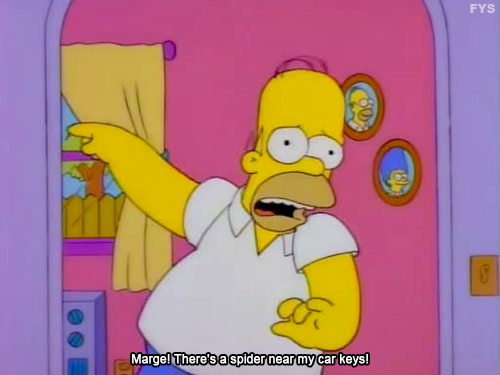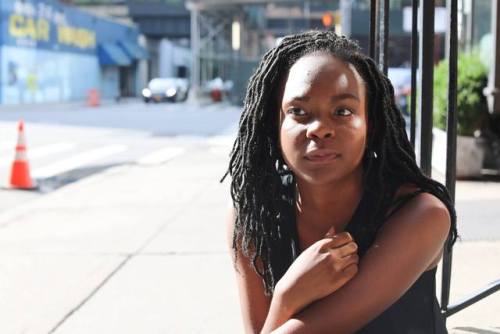Smparticle2 - Untitled




More Posts from Smparticle2 and Others
Webb 101: 10 Facts about the James Webb Space Telescope
Did you know…?

1. Our upcoming James Webb Space Telescope will act like a powerful time machine – because it will capture light that’s been traveling across space for as long as 13.5 billion years, when the first stars and galaxies were formed out of the darkness of the early universe.

2. Webb will be able to see infrared light. This is light that is just outside the visible spectrum, and just outside of what we can see with our human eyes.

3. Webb’s unprecedented sensitivity to infrared light will help astronomers to compare the faintest, earliest galaxies to today’s grand spirals and ellipticals, helping us to understand how galaxies assemble over billions of years.

Hubble’s infrared look at the Horsehead Nebula. Credit: NASA/ESA/Hubble Heritage Team
4. Webb will be able to see right through and into massive clouds of dust that are opaque to visible-light observatories like the Hubble Space Telescope. Inside those clouds are where stars and planetary systems are born.

5. In addition to seeing things inside our own solar system, Webb will tell us more about the atmospheres of planets orbiting other stars, and perhaps even find the building blocks of life elsewhere in the universe.

Credit: Northrop Grumman
6. Webb will orbit the Sun a million miles away from Earth, at the place called the second Lagrange point. (L2 is four times further away than the moon!)

7. To preserve Webb’s heat sensitive vision, it has a ‘sunshield’ that’s the size of a tennis court; it gives the telescope the equivalent of SPF protection of 1 million! The sunshield also reduces the temperature between the hot and cold side of the spacecraft by almost 600 degrees Fahrenheit.

8. Webb’s 18-segment primary mirror is over 6 times bigger in area than Hubble’s and will be ~100x more powerful. (How big is it? 6.5 meters in diameter.)

9. Webb’s 18 primary mirror segments can each be individually adjusted to work as one massive mirror. They’re covered with a golf ball’s worth of gold, which optimizes them for reflecting infrared light (the coating is so thin that a human hair is 1,000 times thicker!).

10. Webb will be so sensitive, it could detect the heat signature of a bumblebee at the distance of the moon, and can see details the size of a US penny at the distance of about 40 km.

BONUS! Over 1,200 scientists, engineers and technicians from 14 countries (and more than 27 U.S. states) have taken part in designing and building Webb. The entire project is a joint mission between NASA and the European and Canadian Space Agencies. The telescope part of the observatory was assembled in the world’s largest cleanroom at our Goddard Space Flight Center in Maryland.
Webb is currently being tested at our Johnson Space Flight Center in Houston, TX.

Afterwards, the telescope will travel to Northrop Grumman to be mated with the spacecraft and undergo final testing. Once complete, Webb will be packed up and be transported via boat to its launch site in French Guiana, where a European Space Agency Ariane 5 rocket will take it into space.

Learn more about the James Webb Space Telescope HERE, or follow the mission on Facebook, Twitter and Instagram.
Make sure to follow us on Tumblr for your regular dose of space: http://nasa.tumblr.com.
Ya sneaky! :)





Hugh Laurie Honored With Star On The Hollywood Walk Of Fame October 25 th 2016
(..and was about time!!!!! )


Fluid systems can sometimes serve as analogs for other physical phenomena. For example, bouncing droplets can recreate quantum effects and a hydraulic jump can act like a white hole. In this work, a bathtub vortex serves as an analog for a rotating black hole, a system that’s extremely difficult to study under normal circumstances. In theory, the property of superradiance makes it possible for gravitational waves to extract energy from a rotating black hole, but this has not yet been observed. A recent study has, however, observed superradiance for the first time in this fluid analog.
To do this, the researchers set up a vortex draining in the center of a tank. (Water was added back at the edges to keep the depth constant.) This served as their rotating black hole. Then they generated waves from one side of the tank and observed how those waves scattered off the vortex. The pattern you see on the water surface in the top image is part of a technique used to measure the 3D surface of the water in detail, which allowed the researchers to measure incoming and scattered waves around the vortex. For superradiance to occur, scattered waves had to be more energetic after interacting with the vortex than they were before, which is exactly what the researchers found. Now that they’ve observed superradiance in the laboratory, scientists hope to probe the process in greater detail, which will hopefully help them observe it in nature as well. For more on the experimental set-up, see Sixty Symbols, Tech Insider UK, and the original paper. (Image credit: Sixty Symbols, source; research credit: T. Torres et al., pdf; via Tech Insider UK)




Engineers build world’s lightest mechanical watch thanks to graphene
An ultralight high-performance mechanical watch made with graphene is unveiled today in Geneva at the Salon International De La Haute Horlogerie thanks to a unique collaboration.
The University of Manchester has collaborated with watchmaking brand Richard Mille and McLaren F1 to create world’s lightest mechanical chronograph by pairing leading graphene research with precision engineering.
The RM 50-03 watch was made using a unique composite incorporating graphene to manufacture a strong but lightweight new case to house the delicate watch mechanism. The graphene composite known as Graph TPT weighs less than previous similar materials used in watchmaking.
Graphene is the world’s first two-dimensional material at just one-atom thick. It was first isolated at The University of Manchester in 2004 and has the potential to revolutionise a large number of applications including, high-performance composites for the automotive and aerospace industries, as well as flexible, bendable mobile phones and tablets and next-generation energy storage.
Read more.

“I came to America when I was six years old. Mom said she brought us here so that we’d have opportunities in life. She said that back in the Bahamas, it’s only the ‘haves’ and the ‘have nots.’ She wanted us to have more choices. But I don’t think she fully understood how things work here. She was a news reporter back in the Bahamas. But the only job she could get here was taking care of oldpeople. My dad could only work construction. We moved to four different states just so they could find work. They always told me, ‘Just study hard in school and everything will work out fine.’ So that was my plan. I got all A’s up until the 11th grade– except for one B in math. My goal was to get top twenty in my class, then go to college, then get a degree, and then get a job. I realized the truth my senior year. My guidance counselor told me I couldn’t get a loan. I couldn’t get financial aid. Even if I could find a way to pay for school, I probably couldn’t get a job. I felt so mad at everyone. There were some kids who completely slacked off in school, but even they were going to college. I started having panic attacks. My dad told me not to worry. He called me a ‘doubting Peter.’ He invited all his friends over to a fish fry to help raise money. And he did get $3,000. But that wasn’t enough. So I searched really hard on the Internet and found the Dream.us scholarship. My mom was so excited when I got it. They’re paying for me to go to Queens College. Now my mom’s really scared again because DACA got revoked. She’s crying all the time at work. I try to tell her that no matter what happens, we’re not going to die. We just might have to start over.”




L.M. Montgomery, Anne of Green Gables (via books-n-quotes)
It’s been my experience that you can nearly always enjoy things if you make up your mind firmly that you will.




This supercapacitor battery can be recharged 30,000 times

A thin, flexible supercapacitor boasts high energy and power densities. Credit: University of Central Florida
Everyone and anyone with a smartphone know it is not long before your phone holds a charge for less and less time as the battery begins to degrade. But new research by scientists at the NanoScience Technology Center at the University of Central Florida (UCF), USA, could change that. The team have developed a new method for producing flexible supercapacitors that can store greater amounts of energy and can be recharged over 30,000 times without degradation. This new method could transform technology such as electric vehicles and mobile phones in the future.
‘If you were to replace the batteries with these supercapacitors, you could charge your mobile phone in a few seconds and you wouldn’t need to charge it again for over a week,’ said University of Central Florida researcher Nitin Choudhary.
The UCF team has attempted to apply newly discovered 2D materials that measure just a few atoms thick to supercapacitors. Other scientists have also tried formulations with other 2D materials including graphene, but had only limited success. The new supercapacitors are composed of millions of nanometre-thick wires coated with shells of 2D materials. The core facilitates the super-fast charging and discharging that makes supercapacitors powerful, and the 2D coating delivers the energy storage ability.
‘We developed a simple chemical synthesis approach so we can very nicely integrate the existing materials with the two-dimensional materials,’ said Yeonwoong Eric Jung, assistant professor of the study. Jung is working with UCF’s Office of Technology Transfer to patent the new process. ‘It’s not ready for commercialisation,’ Jung said. ‘But this is a proof-of-concept demonstration, and our studies show there are very high impacts for many technologies.’
-
 mybendystraw reblogged this · 2 weeks ago
mybendystraw reblogged this · 2 weeks ago -
 liminalarcadez liked this · 2 weeks ago
liminalarcadez liked this · 2 weeks ago -
 autumnlovesotome liked this · 3 weeks ago
autumnlovesotome liked this · 3 weeks ago -
 spaghetti1man liked this · 3 weeks ago
spaghetti1man liked this · 3 weeks ago -
 nadalinde liked this · 1 month ago
nadalinde liked this · 1 month ago -
 enduremasterwayne reblogged this · 1 month ago
enduremasterwayne reblogged this · 1 month ago -
 level-17-spheal reblogged this · 1 month ago
level-17-spheal reblogged this · 1 month ago -
 awesomesauce-n-sassypants reblogged this · 1 month ago
awesomesauce-n-sassypants reblogged this · 1 month ago -
 ciancyan liked this · 1 month ago
ciancyan liked this · 1 month ago -
 peachesandscream56 liked this · 1 month ago
peachesandscream56 liked this · 1 month ago -
 katy-perry-vevo reblogged this · 1 month ago
katy-perry-vevo reblogged this · 1 month ago -
 pairofsunflowers liked this · 1 month ago
pairofsunflowers liked this · 1 month ago -
 katy-perry-vevo liked this · 1 month ago
katy-perry-vevo liked this · 1 month ago -
 tartrazeen reblogged this · 1 month ago
tartrazeen reblogged this · 1 month ago -
 keeping-writing-frosty liked this · 1 month ago
keeping-writing-frosty liked this · 1 month ago -
 bellascarousel reblogged this · 1 month ago
bellascarousel reblogged this · 1 month ago -
 bellascarousel liked this · 1 month ago
bellascarousel liked this · 1 month ago -
 assortedmusings reblogged this · 1 month ago
assortedmusings reblogged this · 1 month ago -
 edmundpevensiesqueen liked this · 1 month ago
edmundpevensiesqueen liked this · 1 month ago -
 harnitbee reblogged this · 1 month ago
harnitbee reblogged this · 1 month ago -
 parkercannon liked this · 1 month ago
parkercannon liked this · 1 month ago -
 unicornicopia1 liked this · 1 month ago
unicornicopia1 liked this · 1 month ago -
 rubyandruin reblogged this · 1 month ago
rubyandruin reblogged this · 1 month ago -
 rubyandruin liked this · 1 month ago
rubyandruin liked this · 1 month ago -
 mamba-pride liked this · 1 month ago
mamba-pride liked this · 1 month ago -
 yourfamilyfriendsatan reblogged this · 1 month ago
yourfamilyfriendsatan reblogged this · 1 month ago -
 yourfamilyfriendsatan liked this · 1 month ago
yourfamilyfriendsatan liked this · 1 month ago -
 nelotegreitic liked this · 1 month ago
nelotegreitic liked this · 1 month ago -
 nochance-noway reblogged this · 1 month ago
nochance-noway reblogged this · 1 month ago -
 violetchachkii reblogged this · 1 month ago
violetchachkii reblogged this · 1 month ago -
 consolationblog reblogged this · 1 month ago
consolationblog reblogged this · 1 month ago -
 golurkkoopa reblogged this · 1 month ago
golurkkoopa reblogged this · 1 month ago -
 nobodysvoice22 reblogged this · 1 month ago
nobodysvoice22 reblogged this · 1 month ago -
 nobodysvoice22 liked this · 1 month ago
nobodysvoice22 liked this · 1 month ago -
 crunch-burger reblogged this · 1 month ago
crunch-burger reblogged this · 1 month ago -
 solarpoweredkittens reblogged this · 1 month ago
solarpoweredkittens reblogged this · 1 month ago -
 im2tired4usernames reblogged this · 1 month ago
im2tired4usernames reblogged this · 1 month ago -
 im2tired4usernames liked this · 1 month ago
im2tired4usernames liked this · 1 month ago -
 breadedumbrella reblogged this · 1 month ago
breadedumbrella reblogged this · 1 month ago -
 iamnotcreativeiwishiwas liked this · 1 month ago
iamnotcreativeiwishiwas liked this · 1 month ago -
 validatemylife reblogged this · 1 month ago
validatemylife reblogged this · 1 month ago -
 noahsark-cosplay reblogged this · 1 month ago
noahsark-cosplay reblogged this · 1 month ago -
 bleudinosaur reblogged this · 1 month ago
bleudinosaur reblogged this · 1 month ago -
 iandigspastime reblogged this · 1 month ago
iandigspastime reblogged this · 1 month ago -
 iandigspastime liked this · 1 month ago
iandigspastime liked this · 1 month ago -
 tinbells liked this · 1 month ago
tinbells liked this · 1 month ago -
 videodromeda liked this · 1 month ago
videodromeda liked this · 1 month ago -
 slick-back-paddy-whack reblogged this · 1 month ago
slick-back-paddy-whack reblogged this · 1 month ago